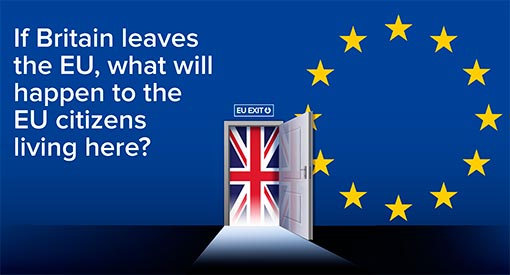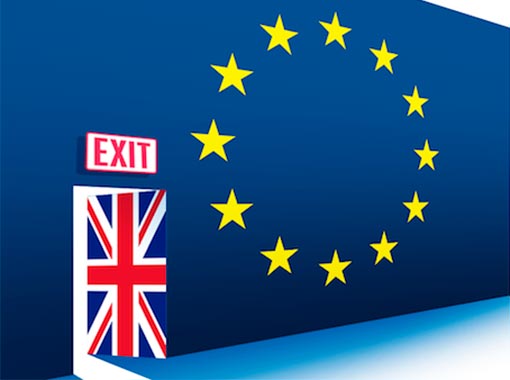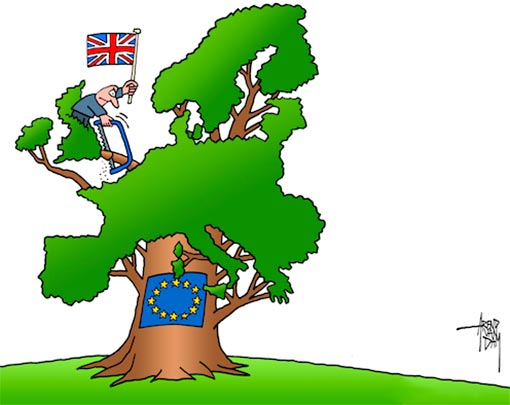
They say a week is a long time in politics and this certainly was the case following the recent Referendum on the UK´s membership of the European Union (EU).
One month has passed and the immediate aftermath of the decision to leave has left the Conservative party with a new leader/Prime Minister, the labour party still in disarray, the global financial markets in turmoil and the spectre of the UK potentially breaking up (not forgetting its impact on the sovereignty of Gibraltar!).
Out the outset I have to say I was both disappointed and shocked. Disappointed at the result and shocked at the way the campaigns were run, particularly regarding some of the spurious claims espoused in what became an increasingly bitter and xenophobic atmosphere as the Referendum progressed. Just at a time when politicians needed cool heads and wise counsel the campaigns descended into scaremongering and spreading fear through vulnerable parts of the nation. In my view, no one presented a calm analysis of the pros and cons of EU membership on which people could make an objective decision, unfortunately the things that lingered most in people´s minds were the slogans on the red bus and UKIP´s immigration poster. The opportunity to create this objective analysis was lost in the claims and counterclaims made by the Leave and Remain camps and the Conservative, Labour and UKIP parties, particularly regarding immigration, which I believe was one of the key determinants in reaching the “Leave” result.
This hysteria even continued after the Referendum with the jostling amongst Conservative MP´s to succeed the Prime Minister, David Cameron, ending almost farcically with what has been termed the “Boris gate” affair. The actions of the political elite in the UK over the last week have reflected poorly on the country, home and abroad.
What does it mean for Brits living in the UK and abroad?
Clearly, there are short term impacts which are already being felt by Brits in the UK and those living in Spain and other EU countries. Although the UK stock market has largely recovered to pre-Referendum levels, the decrease in value of the pound against the euro means holidays to EU destinations will be more expensive and for those Brits living on a UK pension in Spain, they will have less money in their pockets now and in the future if their pensions do not remain index linked. The simple answer is nobody really knows what will happen in the long-term; it is now evident that the politicians heading up the leave campaign did not have a strategic plan in the event of a “leave” result. What is more worrying is that one month on there is still no plan and no one can describe what Brexit actually means for people living in the UK and expats abroad.
Questions will need to be answered long-term about how the Spanish Government will treat Expat Brits living in Spain in terms of status, travel etc. It should be remembered that this cohort provides a significant contribution to the Spanish economy, particularly in Andalucía, in terms of tax and spending and should be treated sympathetically in that respect.
Brits in the UK, who voted for “Leave” on the basis of “getting our Country back”, are themselves not immune from Brexit as the UK Chancellor had already indicated that tax rises will be needed to try to repair the UK economy. The cost of living in the UK will therefore increase as a direct result of the Referendum result.
Longer term there is the unknown outcome of negotiations regarding our trading relationship with the EU which undoubtedly will be linked to the movement of people between the EU and the UK. The status of the UK re Scotland and Northern Ireland, who voted overwhelmingly to stay within the EU, will have to be resolved although for these countries leaving the UK may be increasingly difficult to achieve as majority decisions are needed within the EU for new membership. Gibraltar will come under increasing pressure from Spain regarding its Sovereignty, and this will also need to be addressed in the coming months and years.
Although I voted to remain in the EU that does not mean I am satisfied with the way that the EU is run. Like many I believe it does need reform and that the UK could have played an important role in reshaping that organisation from within. The decision to leave means the UK will not be able to do this and the doors, literally, have already started to close.
Overall, the result, and its ensuing consequences, has left me with a feeling of sadness; sadness that democracy has not been well served by the Referendum and sadness that a decision, which could have momentous ramifications for Brits living in the UK and Spain, has been reached in this acrimonious way. Furthermore, sadness that in the long-term the UK may have less influence in Europe, one of our most significant trading areas.
Finally, I was asked recently by someone from Canada, “Who were the losers in the UK Referendum”. Ironically, apart from those who voted to remain, I believe it will be those voters, many of whom are in their latter years, who voted in large numbers to leave on the basis of NHS and immigration issues. They could find over time that the NHS may not get what it needs, migration may still happen as part of any trade deals with the EU and they will actually have less money to spend.
I sincerely hope that it is not the younger generation that are the losers, because they voted to stay in the EU and they are our future.

En la Comarca de Alhama, y sus alrededores amigos y conocidos me han preguntado que opino de Brexit. Bien, esta es mi opinión y por qué Brexit causará un impacto en nuestra economía, si es que sucede.
Por otra parte, la campaña de abandonar, estuvo encabezada por Boris Johnson, ex alcalde de Londres y un periodista muy carismático, le apoyaron el líder del partido UKIP, Nigel Farage, quien es representante del Reino Unido en La UE desde hace 17 años, y otros políticos prominentes. Su campaña para dejar la UE estuvo basada en mentiras y promesas que son imposibles de cumplir, haciendo hincapié en " tomar control de nuestras fronteras" y "dejar de pagar cuotas a la UE e invertir ese dinero en el sistema de seguridad social". Ambos nefastos personajes, han renunciado a seguir encabezando el grupo de abandonar, a sólo unos días de haber ganado el referéndum. ¿No te parece extraño?
Eso no es mayoría. Ya que muchas personas emitieron un voto habiendo sido embaucadas por los argumentos del grupo de abandonar, las cuales, se ha comprobado, no son verdad ni e pueden cumplir. Votaron basados en mentiras.
La nueva primera ministra en el Reino Unido, Theresa May, ha nombrado a una comisión para que preparen la propuesta de salida de la UE porque aquellos que incitaron al Brexit, no tiene un plan de salida de la EU.
1. Debido a que más de 4 millones de personas han solicitado bajo petición al parlamento se debatan las consecuencias del Brexit y se decida si habrá un nuevo referéndum, ya que la diferencia entre los votos en favor de abandonar y aquellos en favor de permanecer, fue de menos del 4%, el electorado desea mayor información ya que votaron basados en la información llena de elucubraciones, medias verdades y mentiras. El parlamento ha decidido debatir el tema el 5 de septiembre y mientras tanto, oficialmente, no hay cambio.
2. Que el gobierno prepare una propuesta de salida de la UE del Reino Unido, y se la presente al parlamento británico. El parlamento británico debe primero, debatir y votar en favor o en contra de cancelar su participación en el Tratado de la Comunidad Económica Europea, el cual firmó en 1973. El parlamento británico no empezará discusiones al respecto antes de septiembre 2016. Este tema puede llevar meses y habrá que consultar al electorado, lo cual deberán hacer los miembros del parlamento.
3. Que el parlamento británico debata y vote a favor o en contra de invocar el artículo 50 del tratado de Lisboa, para lo cual se requiere un primer ministro que esté convencido de poder encabezar las negociaciones y obtener resultados positivos para el Reino Unido, en un plazo máximo de 2 años. Eso llevará tiempo y las consecuencias deberán ser analizadas cuidadosamente.

Existe un gran riesgo de rompimiento del Reino Unido ya que Escocia, Gibraltar, Irlanda del Norte y Londres han votado mayoritariamente a permanecer en la EU y sería el principio del desmoronamiento del Reino.
